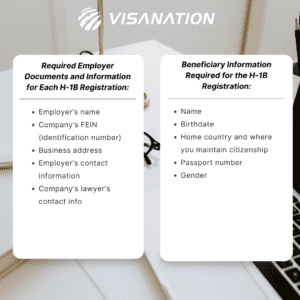What Not to Include in Your Will
2023-03-09
Posted at 20:10h
in Estate Planning, Wills
A properly drafted will can help ensure your assets are properly distributed after you’re gone. Your will should include your appointed executor, named guardians for minors, as well as a list of your assets and beneficiaries. But there are many things that are either unnecessary, ineffective, or confusing—here’s what not to include in your will.
Seven Things Not to Include in Your Will
1: Funeral Arrangements
Many people assume that since a will is read after their death, then it should include their funeral arrangement preferences. But when a will must go through probate, the process can take months. By the time your will has been validated by the court, your funeral will most likely have already passed.
Fortunately, there’s another way to legally explain your funeral preferences. In addition to your standard will, you can create an advance directive called a living will that lays out your funeral wishes. Your family and executor will have immediate access to advance directives after you pass away, as long as you inform them ahead of time that it exists.
2: Probate Assets
During the probate process, the court validates your will and oversees the distribution of your assets, which can place a financial and emotional burden on your loved ones. Many types of assets are subject to probate, including vehicles and homes titled in your name, personal possessions, business interests, bank accounts, stocks, and other financial assets.
Since a will does not protect these assets from probate, it’s best to place them in a trust. Living (revocable) and irrevocable trusts both avoid probate and give you more control over how and when you wish to distribute your assets to your beneficiaries.
You should, however, account for any probate assets that may accidentally get left out of your trust by creating a pour-over will. After you’ve set up your trust, you can create a pour-over will that protects any assets not already held in your trust by transferring them to the trust after you pass away.
3: Living Trust Property
Because the assets and real estate property you place in a trust will transfer to your beneficiaries according to your instructions, there’s no need to include them in your will. Including trust property in your will can cause confusion and family disputes that only complicate the process of administering your estate. If you’ve added assets to your trust that were previously in your will, make sure to amend the will.
4: Accounts with Beneficiary Designations
IRAs, life insurance polices, and some bank accounts already have named beneficiaries. These assets will automatically transfer to the beneficiary after you pass away. So like with trust assets, you should avoid putting this in your will to prevent confusion and ensure the asset transfers to the right person. A beneficiary designation overrides a will, so if you decide to change the beneficiary of the account, you must change it on the account itself.
5: Jointly Owned Property
If you own property jointly with your spouse, children, business partners, etc., then the property automatically transfers to the co-owners after you pass. Because Arizona is a community property state, the same goes for any real estate you acquire during your marriage, even if your name is the only one on the deed. Therefore, placing jointly owned property in a will isn’t necessary, and will only cause confusion.
6: Assets for Special Needs Beneficiaries
If you have a loved one who is disabled, naming them as a beneficiary in your will can actually do more harm than good. Receiving an inheritance through your will could disqualify them from government assistance if it causes them to exceed the income limitations. Their inheritance would also be vulnerable to lawsuits.
Instead, you should set up a special needs trust (SNT). This type of irrevocable trust allows the disabled beneficiary to receive income without it impacting their eligibility for government assistance. Plus, the assets are held in the name of the trust, not the beneficiary, so creditors cannot go after them.
7: Money and Instructions for Pet Care
Your pet deserves the best possible care after you’re gone, so you may wish to set aside some money specifically for them. However, because the court views pets as property, you can’t leave money directly to a pet. And leaving money designated for pet care to someone through your will does not guarantee that the money will be well spent.
The best way to ensure that your pet gets the care they need is by setting up a pet trust. The trustee is legally obligated to follow your instructions for using the funds and caring for your pet. You can also leave instructions for what happens to your pet if you become incapacitated.
Drafting Wills and Trusts in Arizona
There are many important steps to creating a valid will or trust in Arizona. The experienced team at Phelps LaClair can help you draft all the legal documents you need to ensure that your assets end up in the right hands at the right time.
We’ve been offering estate planning services in Arizona for over 40 years. Call us at 480-892-2488 today to schedule a free consultation in Mesa, Chandler, or one of our other convenient locations.
Images used under creative commons license – commercial use (3/9/2023). Photo by Katarzyna Grabowska on Unsplash






